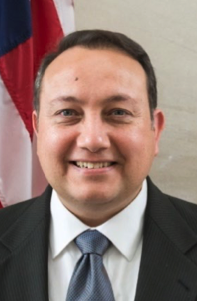The limited number of certain generic topical products may have resulted from the difficulty in demonstrating bioequivalence (BE) efficiently. To address this public health issue, FDA invested in research and developed new in vitro (laboratory), in silico (computational modeling) and in vivo (clinical) approaches, which could be used to establish the BE of topical products in a far more efficient manner. Efficient characterization-based approaches to demonstrate BE are now established for prospective generic drug products, but their utility is limited to instances when the formulation composition of prospective generic products is well matched to that of the reference standard. In other instances, comparative clinical endpoint BE studies continue to be utilized.
The purpose of this workshop is to discuss efficient, science-based BE approaches in development that may be useful for certain prospective generic products that are compositionally different compared to the reference standard. These approaches may utilize sophisticated techniques that have been developed to characterize the physical, structural, sensorial and thermodynamic properties of topical drug products applied on the skin, as well as in vivo cutaneous pharmacokinetics (PK) studies. The workshop will provide an update on the progress of research activities funded by the Generic Drug User Fee Amendments, explore challenging issues that would benefit from broader discussion, identify areas that should be targeted with further research, and discuss opportunities for coordination and collaboration between FDA, the generic industry, academic institutions, contract research organizations, consultants and others involved in generic drug development.
FDA and the Center for Research on Complex Generics—which is a collaboration between the University of Maryland School of Pharmacy and the University of Michigan College of Pharmacy—are dedicated to advancing programs that stimulate scientific dialogue, disseminate current insights about complex generics, and generate new knowledge in support of FDA’s mission to promote and protect the public health by increasing access to safe and effective generic medicines.
Workshop Topics
- Understanding the influence of inactive ingredients and other aspects of topical formulations on their performance
- Establishing the theoretical framework and scientific principles for well-controlled in vivo cutaneous PK studies that are sensitive and discriminating
- Elucidating practical challenges associated with method development and validation of in vivo cutaneous PK methodologies
Audience
The generic drug industry, academic institutions, contract research organizations, consultants, and others involved in, or whose work supports, the development of generic drug products.




 Deputy General Manager, Specialty Formulations, Alembic Pharmaceuticals Ltd.
Deputy General Manager, Specialty Formulations, Alembic Pharmaceuticals Ltd.
 Senior Pharmacologist, DTP I, ORS, OGD, CDER, FDA
Senior Pharmacologist, DTP I, ORS, OGD, CDER, FDA



















